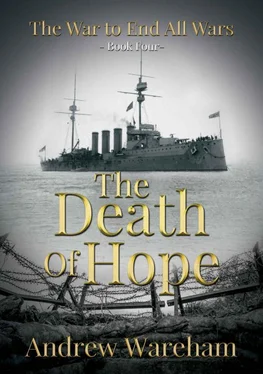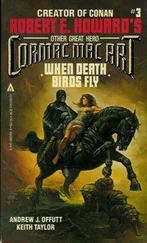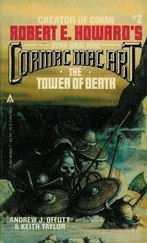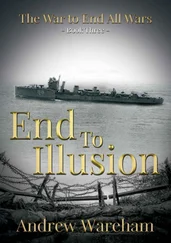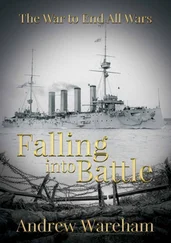The remainder of the letter was as ever, with the exception that Zeppelins had been observed over England. This was very shocking, as he no doubt appreciated. She had almost lost her temper with one dear dowager who had commented that they now knew what the troops were facing, were sharing the hazards of war with them.
He wished he might have been there.
There was little unusual in that, he often wished he was at her side in England.
The parcels arrived, one for each in the battalion with a few dozen extras, counting being imprecise at a distance. Richard was amused that officers received the same as the men. Hawkeswill was not at all sure that was correct, felt that they should not refuse the dear ladies’ bounty.
“No doubt they knew no better, sir.”
Richard was sure Primrose knew exactly what she was doing, saw no need to say so. He took his own box into the dugout.
“What have we got?”
They inspected the box, appreciating the thought that had gone into the selection.
“Two half-pound bars of chocolate, sir. Everybody will like that. One hundred cigarettes, Senior Service, one of the better brands. Four ounces of pipe tobacco. The smokers can exchange that between them. One balaclava helmet, thick wool, best quality. Two pairs of thick stockings.”
They had spent at least two pounds on each box.
“I still don’t smoke, Paisley.”
“I know, sir. Don’t worry. I’ll look after the tobacco for you, sir.”
Word spread somehow that the parcels had been organised by the colonel’s lady. The men cheered her.
‘Major O’Grady was appreciative of the benefit to his battalion.
“No end of good, it has done, sir. Not for what it was so much, though it was very welcome, but for the ladies caring for them. A good smoke and a lump of chocolate to chew on is welcome. Christmas coming and the weather getting raw. The men are pleased with the balaclavas under the cold tin helmets.”
The Army had at last organised protective helmets for the front-line infantry. Opinion was varied on their effectiveness and many of the men had begrudged wearing them, being an innovation and therefore probably not necessary. Richard put his on unfailingly, setting the example and ordering all other officers to do the same.
“Problem with Mr Wincanton, sir. The helmets coming in just the one size, his tends to slip down and sit on his ears, sir. Perhaps the balaclava will help it stay on top of his head.”
Richard was not surprised that Wincanton’s head was smaller than most – there was nothing to fit inside it, after all.
“How did he do in the push, Hawkeswill? I cannot remember noticing him.”
“He was where he should have been, sir. At the front, waving a damned great big walking stick vaguely and shouting to the men to keep their line. He went in first to his section of trench. Cannot ask for more than that. He fell over, jumping in, but they picked him up quickly. Apparently he found four Huns in a dugout and pulled them out at the point of his revolver, to the approval of his own platoons.”
“Well done the boy. I thought he might have gone wandering off in the wrong direction.”
“No, sir. Better put him up to full lieutenant, sir. His men find him funny. They like him.”
“Glad somebody does! Put the papers in, Hawkeswill. How far does it have to go these days?”
“Division will give the effective approval, sir. If they agree, it’s rubber stamp from the War Office. Same for lieutenant to captain. Major has to be approved at Corps and anything higher is handled in London.”
“Good. What have you in mind for the conscripts?”
“A choice of their own platoons, separate for training purposes, or feeding them into the existing company structure, to fill in the gaps. I don’t like the idea of keeping them apart from the men. Makes them pariahs. My advice, sir, is to treat them like any other replacement coming up the line.”
“I’ll have a word with Major Vokes. Unless he has strong opinions otherwise, that’s what we shall do.”
“I expect most of them will fit in, sir. If they don’t, we can make them.”
The dinner party was, Simon imagined, a great success.
His uncle took pride of place, having seniority in station over all present. Simon took the next chair, a baronet’s wife on one side, a knight’s lady on the other. As heir to the viscountcy, he supposed he had some social standing. Being the proud fiancé, he must also be given prominence; add to that, he had some rank and good decorations. The combination made him visible and valuable to Mrs Parrett, concerned to increase her already high standing in the County. The Lord Lieutenant was not present, to her regret, she could not yet call on the very highest to grace her table; that would come, she did not doubt, when her new son-in-law acceded to his uncle’s honours.
The one great worry, clouding her triumph, was that dear Simon insisted still on sailing off to war, risking his valuable life. An early wedding, followed, she much trusted, by a rapid pregnancy and there would be an heir in his line, a grandson to keep the title in the Parrett family. She must hope that he could achieve another leave, although he had said that he expected to be many months aboard ship now, could not look for a second spell of rest in the next twelvemonth. He would be able to pay fleeting visits, a day or two at a time, totally inadequate for a wedding. The war was a nuisance, interfering with the important things in life!
Mrs Parrett was a little chagrined that she was stepping up on the back of her youngest child, rather than her own endeavours, consoled herself that dear Alice had always been her favourite. A pity that her husband had never been willing to work for a title; she was sure that he could have done so, had no doubt they could have found the money involved, the family had pots of it, after all!
Two of the invited families had sent late apologies, had just gone into mourning for sons lost in a flare-up at the Front. Both had been lieutenants in the Suffolks. She wondered if her eldest son, recently joined the regiment, might have been involved. They had received no telegram, had no rational cause for worry, and she was not to disturb her peace of mind with such gloomy speculations. All was well in her world, as it always had been and must ever continue.
The ladies withdrew and the men clustered around the head of the table, the decanters circulating.
“What have you heard in London, my lord? Even so close as Ipswich, we pick up little of the latest information.”
“The Battle of Loos is winding down, Mr Parrett. Fifty thousand losses and almost nothing gained. French cannot last. It is a matter of a very few weeks now while the government tidies all and decides who must go where. Haig is being consulted, of course, and will have the final say on who is promoted, who will be sent away among the generals. No names available yet.”
He had said very little. It was more than the newspapers had to offer.
“There was talk of advances made, territory held, my lord.”
“Much talk. Little eventuality, I fear. The newspapers are no longer to be relied upon. Perhaps the only accurate items are the lists of names.”
“Fifty thousand dead and wounded! How many of them will be fit ever to return to service, my lord?”
“That is unclear. More than twenty thousand died. The machine guns and artillery took a heavy toll. Of the wounded, at least one half will never fully recover. Many are suffering from gas, their lungs impaired for life, a shortened life in all probability.”
“What swine the Huns are to use poison gas!”
Viscount Perceval chose not to enlighten them; they would not understand how it could come about that British gas had caused the bulk of such casualties, possibly all. He did not know that the Germans had released any gas in that battle.
Читать дальше
